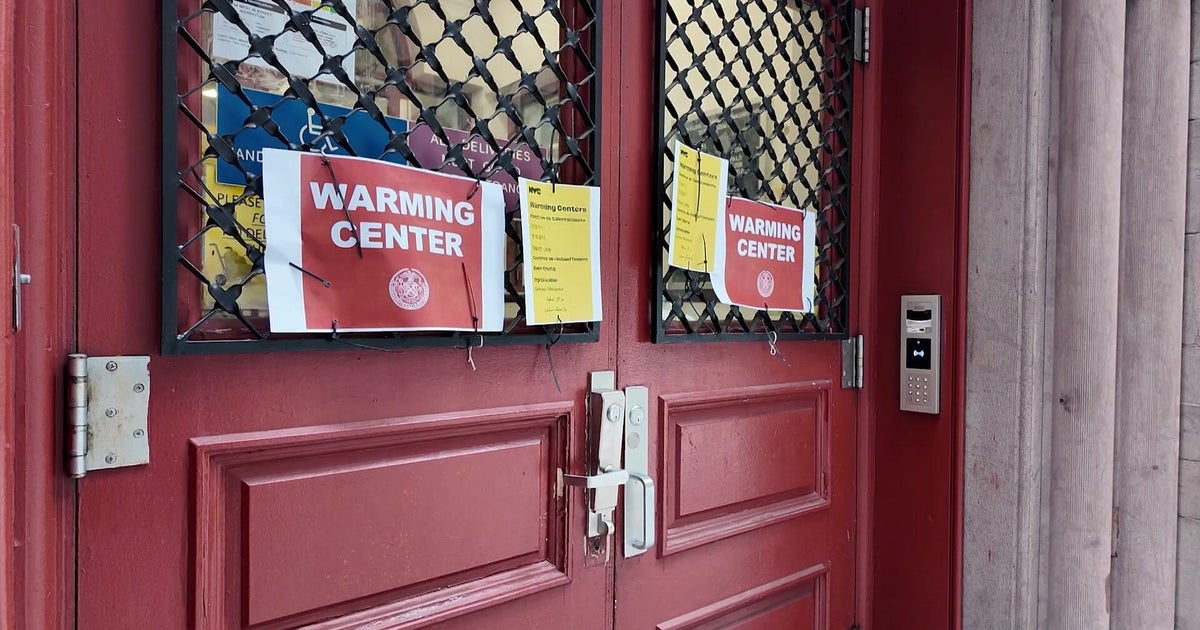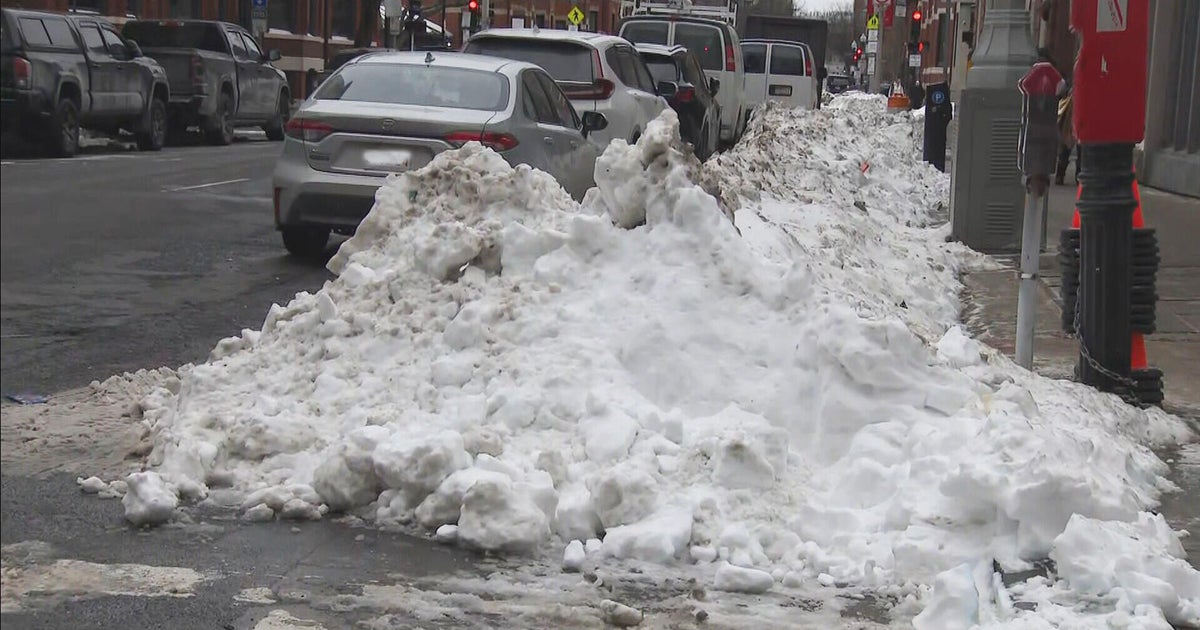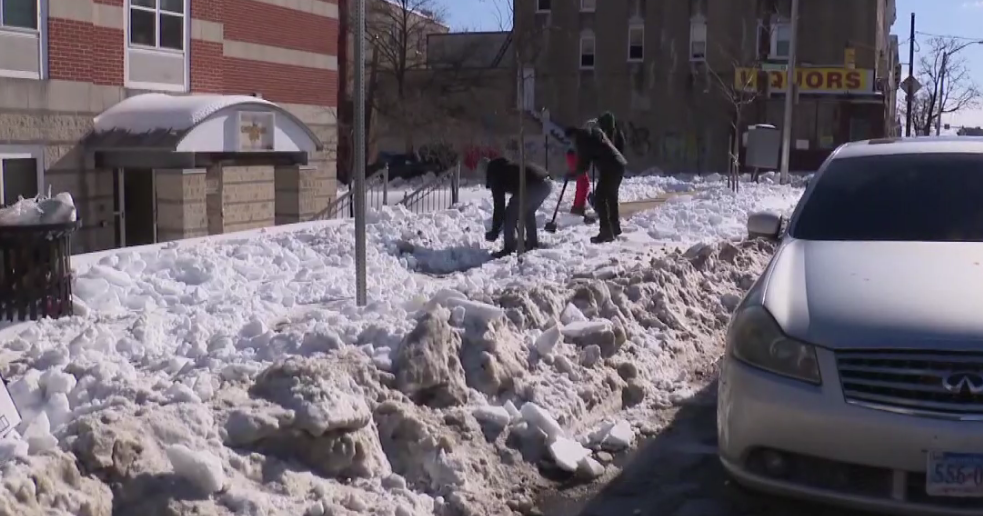Mayor De Blasio Unveils Aggressive Plan To Reduce New York City Waste 90 Percent By 2030
NEW YORK (CBSNewYork/AP) -- In a far-reaching effort to limit its impact on the environment, the nation's biggest city marked Earth Day by announcing a plan to reduce its waste output by 90 percent by 2030.
The "OneNYC" plan includes an overhaul of the city's recycling program, incentives to reduce waste and tacit support for the City Council's plan to dramatically reduce the use of plastic shopping bags. It was announced Wednesday by Democratic Mayor Bill de Blasio.
"This is the blueprint for the future of New York City," de Blasio said.
New York, with about 8.5 million residents, would be the largest city in the Western Hemisphere to adopt such a plan, which aims to reduce the amount of its waste by more than 3 million tons from its 2005 level of about 3.6 million tons.
"The average New Yorker throws out nearly 15 pounds of waste a week, adding up to millions upon millions of tons a year,'' de Blasio said. "To be a truly sustainable city, we need to tackle this challenge head on.''
As CBS2's Marcia Kramer found out Wednesday, the mayor is obsessed with composting. It started at the family home in Park Slope and was brought to City Hall and Gracie Mansion.
"I was an active, energetic composter and when I found others being less energetic I corrected them," de Blasio said. "And I do that pretty much wherever I go. I'm known to do it at City Hall; I'm known to do that at office buildings when I'm visiting other people. I just get a little crazy when I see white paper in the trash can."
Kramer asked the mayor why he has such a fixation on white paper.
"Because it shouldn't be in the trash. It's recyclable," de Blasio said.
The waste reduction plan is part of an update to the sustainability project created by de Blasio's predecessor, Michael Bloomberg. De Blasio is keeping its components but rebranding it OneNYC and widening its scope, linking it to the signature cause of his administration: combating income inequality.
Mayor Bill de Blasio Unveils Plan To Reduce New York City Waste 90 Percent By 2030
The mayor pledged to lift 800,000 New Yorkers either below or near the poverty line in the next decade, one of the largest anti-poverty efforts in the nation's history, and wants to end racial and ethnic disparities in premature mortality, officials said.
"You cannot have a successful city if people feel they don't have an economic future," the mayor said.
For the city's complete OneNYC plan, click here.
De Blasio also reiterated his lofty housing goals -- he aims to create 500,000 units of affordable housing by 2040 -- as well as new capital expenditure pledges to cut down on commuter times and improve the city's aging infrastructure.
For decades, the city's trash has been exported by rail or barge to South Carolina, Virginia, New Jersey, Pennsylvania or upstate New York. The new plan would eliminate almost all the garbage exports, which cost more than $350 million annually.
The amount of waste produced by the city has fallen 14 percent since 2005 because of an increase in recycling, and a key component of the plan is to bolster that output by simplifying the process.
Mayor Bill de Blasio Unveils Plan To Reduce New York City Waste 90 Percent By 2030
Currently, residential buildings have two types of recycling bins. The city's new single-stream plan, already used by other cities, would consolidate all recycling into one bin by 2020.
Organics, such as food scraps and yard waste, make up 31 percent of the city's residential waste stream. A program to collect that material directly from residents' homes is expanding to nearly 200,000 residents by year's end, and city officials want to serve every home by the end of 2018. The city also will offer economic incentives to participate, including potentially a property tax rebate for homeowners.
"There are very few items that aren't recyclable in the waste stream. Diapers, some household building products, aren't, but most of the items in your waste stream are recyclable," First Deputy Sanitation Commissioner Dennis Diggins told Kramer.
The city also aims to reduce commercial waste by 90 percent by 2030 by adopting a program similar to what's used in residential buildings. That could also mean tax incentives for participating businesses and fines for ones that don't.
The de Blasio administration stopped short of endorsing a City Council bill that proposes a 10-cent fee on plastic bags, but officials said that reducing their use is a priority and that they would coordinate efforts with the council.
A spokeswoman for de Blasio said some of the funding for the program would be revealed in next month's budget proposal.
The Zero Waste portion of the OneNYC presentation is meant to build on de Blasio's environmental record, which includes a ban on Styrofoam boxes and the goal to reduce carbon emissions from city buildings by 80 percent by 2050.
But if it sounds a long way off, you're not alone, 1010 WINS' Derricke Dennis reported. And Mayor de Blasio knows it all too well.
"I don't blame anyone who is cynical. I represent 8.5 million jaded people," the mayor joked. "But here's what's different: there's absolute and total commitment at City Hall to achieve these goals."
Environmental groups, however, applauded the plan's wide-ranging scope.
"We see cities all over the world struggling with waste,'' said Michael Berkowitz, president of 100 Resilient Cities. "A more efficient city is a more resilient city, and that means it's a stronger city.''
De Blasio said the plan will work but admitted he needs city, state and federal funding as well as cooperation from City Council and from residents, who could at the very least recycle more, Dennis reported.
(TM and © Copyright 2015 CBS Radio Inc. and its relevant subsidiaries. CBS RADIO and EYE Logo TM and Copyright 2015 CBS Broadcasting Inc. Used under license. All Rights Reserved. This material may not be published, broadcast, rewritten, or redistributed. The Associated Press contributed to this report.)







